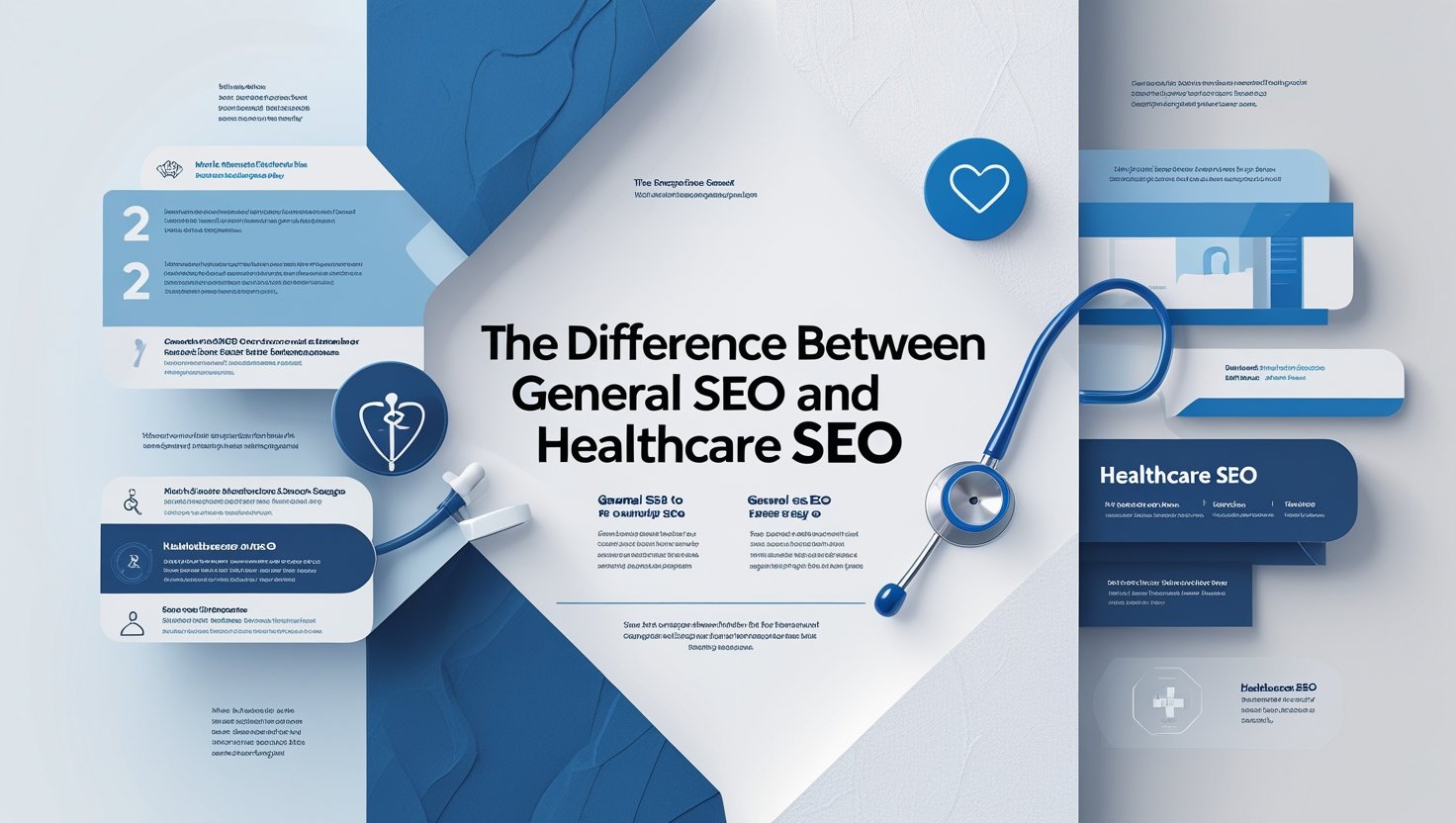Looking for a doctor is no longer something people do by flipping through the phone book. Today, nearly 80% of patients turn to search engines like Google when they need medical care. That’s where the difference between general SEO and healthcare SEO becomes clear. While traditional SEO helps any business gain online visibility, healthcare SEO focuses specifically on medical practices, hospitals, clinics, and health professionals—and requires a more specialized approach. A professional Healthcare SEO Company understands these unique needs and builds strategies that connect healthcare providers with the right patients.
Why Healthcare SEO Isn’t Just General SEO With a Medical Twist
At first glance, SEO might seem universal—improving your website’s visibility, targeting keywords, and increasing organic traffic. But the moment healthcare is involved, there’s more at stake than clicks and rankings. Healthcare SEO must consider patient trust, privacy concerns, government regulations, and a different type of user behavior.
Let’s break it down.
1. Audience Intent: Urgency and Sensitivity
In most industries, SEO targets users researching products or services casually. In healthcare, the search is often urgent and emotional. Someone looking for a heart specialist, pediatrician, or emergency care isn’t browsing—they’re trying to solve a critical problem quickly and safely.
A healthcare SEO strategy takes this urgency seriously by:
- Highlighting services clearly and simply
- Providing fast answers to health-related queries
- Prioritizing contact info, maps, and appointment booking tools
- Displaying reassuring trust signals (credentials, reviews, certifications)
The tone must be both informative and compassionate—something general SEO doesn’t always account for.
2. Strict Guidelines and Compliance
Healthcare websites must comply with HIPAA (Health Insurance Portability and Accountability Act) and Google’s YMYL (Your Money or Your Life) guidelines. These rules are designed to protect users and ensure accurate, safe information is being presented.
That means content needs to be:
- Factually correct and medically reviewed
- Written or approved by licensed professionals when possible
- Free from misleading claims or risky advice
- Hosted securely to protect patient data
A healthcare SEO company is well-versed in these compliance standards and knows how to create content that meets both search engine and legal requirements.
3. Keyword Strategy: Medical Terms and Local Intent
General SEO often chases high-volume, broad keywords. In healthcare, the focus shifts to medical terminology and local targeting. For example:
- “Best dentist in Houston for kids”
- “Urgent care open now near me”
- “What causes chest pain on the left side?”
The right healthcare SEO strategy includes:
- Specific service-based keywords (e.g., “dermatologist for acne treatment”)
- Condition-related keywords that reflect how patients search
- Location-specific pages to rank in local results
- Natural language for voice search compatibility (think: “Who is the best cardiologist near me?”)
This approach ensures patients not only find your practice—but the right page at the right time.
4. Content That Builds Authority and Trust
Healthcare websites need to do more than rank—they need to earn trust. Patients aren’t just looking for services; they want assurance that the provider is qualified and reliable.
Effective healthcare content includes:
- Detailed service pages (what to expect, who it’s for, how it helps)
- Doctor and staff bios with credentials
- Blog posts addressing common health concerns
- Patient testimonials and case studies
- FAQ sections that answer practical, health-related questions
This is very different from general SEO content like how-to articles, product guides, or trend roundups. In healthcare, content has a purpose: to inform, comfort, and convert.
5. Local SEO With a Human Touch
Most people want a doctor close to home. That makes local SEO critical for healthcare providers.
A good healthcare SEO company focuses on:
- Google Business Profile optimization (accurate hours, reviews, services)
- Local listings across directories like Healthgrades, Zocdoc, and Vitals
- Location-specific landing pages for clinics with multiple branches
- Localized content that speaks to neighborhood concerns or demographics
This isn’t just about showing up in maps—it’s about creating a local presence patients can rely on.
6. Reputation Management and Patient Reviews
In healthcare, reviews can make or break trust. While this is important for any business, it’s especially critical in medical fields where personal safety and health are involved.
Healthcare SEO strategies include:
- Encouraging satisfied patients to leave reviews on Google and health directories
- Monitoring and responding professionally to feedback
- Ensuring consistency in online information (name, address, phone number)
- Flagging and addressing false or inappropriate reviews
Review signals also influence local SEO rankings, so this is about more than just public image—it directly affects visibility.
7. Technical SEO With a Focus on Accessibility
Many users searching for healthcare information are older, stressed, or in a hurry. Websites need to be:
- Mobile-friendly and fast-loading
- Easy to navigate with clear calls to action
- Designed with accessibility in mind (larger fonts, screen reader compatibility, contrast for readability)
- Structured with schema markup to help search engines understand medical information
Technical SEO helps ensure users can find the information they need—quickly, safely, and clearly.
How a Healthcare SEO Company Delivers Results
Because of all these extra considerations, working with a dedicated healthcare SEO company offers serious advantages. These companies understand:
- Patient search behavior and psychology
- Medical compliance and terminology
- The importance of trust, clarity, and speed
- Competitive landscapes in various medical fields (e.g., dermatology vs. orthopedics)
Instead of using a general approach, they customize each strategy to fit the specific needs of your practice or clinic.
Here’s what to expect from a reliable healthcare SEO provider:
- Thorough consultation to understand your services and goals
- Custom keyword and content strategy based on your specialties and patient base
- Technical optimization to meet compliance and improve user experience
- Ongoing content development, from blog posts to educational resources
- Performance tracking and reporting, so you know what’s working and what’s not
Final Takeaway: One Size Doesn’t Fit All in SEO
SEO is never a plug-and-play tool—but when it comes to healthcare, the differences are even more significant. A general SEO strategy may get some results, but to truly connect with patients and earn their trust, you need a focused, experienced partner who understands the healthcare space.
A specialized healthcare SEO company can help you attract the right patients, appear in the right searches, and communicate your expertise effectively—without risking compliance or credibility.
If your medical practice is ready to be found by more people who need your help, consider the difference a healthcare-focused approach can make. Because when it comes to health, every search matters.


